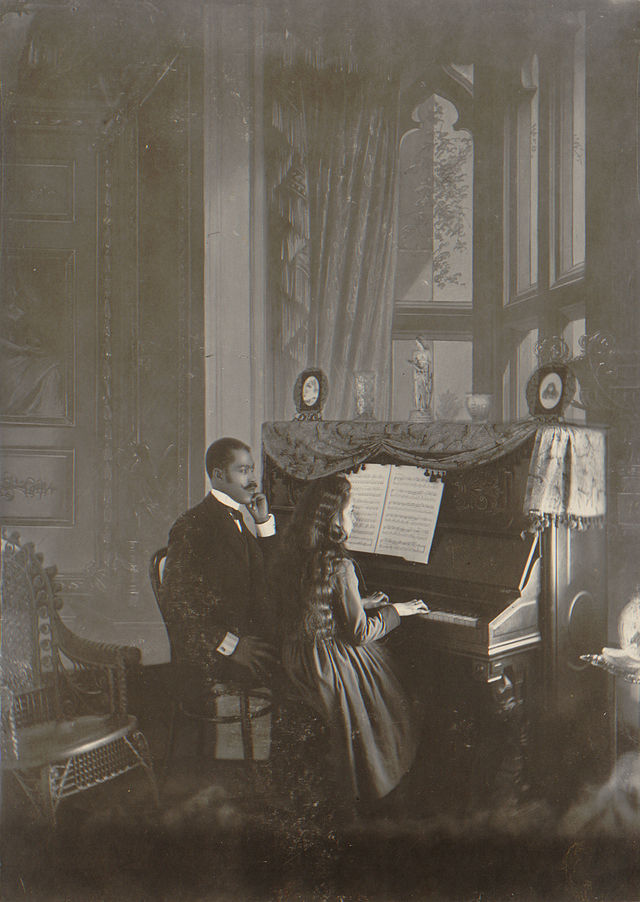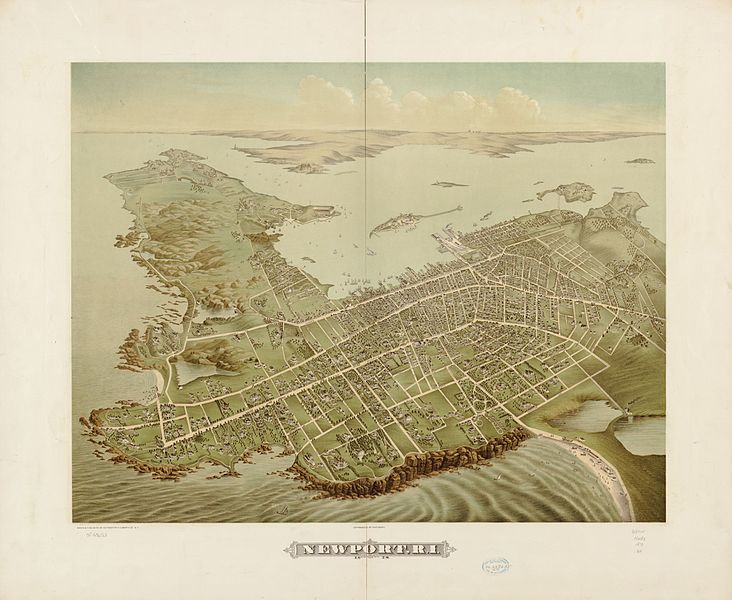
The Old Guard (1760-1862): Before Emancipation
In connection to the so-called "old guard," Josephine R.B. Wright , the Josephine Lincoln Morris Professor of African Studies and chair of African Studies at the College of Wooster, states in her essay "Art/Classical Music" that "a small number of classically trained African American composers worked professionally in the United States before the Civil War. Most lived above the Mason-Dixon line, but some resided in slave states. They received their formal instruction in music largely from immigrant European musicians who had settled in large metropolitan centers. Some learned from local practitioners or were self-taught. Generally, these early pioneers wrote short compositions based upon European American models (e.g., balladsA simple song of natural construction, usually in the narrative or descriptive form. A ballad usually has several verses of similar construction and may or may not have a refrain, hymnsA song of praise or adoration to a deity, anthemsA choral setting of an English religious text similar to a motet, usually used in church with or without organ accompaniment, gleesAn English part song for three or more voices originating in the 17th century. The glee differs from the madrigal in that the glee is peculiar to England, is simpler in harmonization, is occasionally accompanied by instruments, and is usually exclusively sung by males., marchesA processional or military air especially suited to parades, processions, or martial affairs. It is generally written in 2/4, 6/8, or 4/4 time. Usually a march is an ornamentation of a regular and repeated drum rhythm, and is performed on brass instruments, woodwind instruments, drums, pipes, and other martial instruments. Many exceptions to the strict march style provide a wide range of acceptable derivations. For example, the Italian march genre of the 19th and 20th centuries tended to include very lyrical sections. Also, several 20th century composers have gone outside the traditional march genre in their compositions using atonal techniques, overturesAn introductory movement for orchestra intended to introduce an opera, oratorio, or other dramatic vocal composition by presenting themes to be heard later in the composition. Also, an independent composition for orchestra; in this case, it is called a "concert overture."); social dance music (e.g., waltzesAn extremely popular ballroom dance of the 19th century in triple meter. The waltz originated in the 18th century, and by the early 19th century, it was objected to because of the risk to health it induced by whirling around the room so quickly, and also on a moral basis, because the gentleman's hand was placed around the woman's waist. Despite these objections, the waltz gained in popularity, and many major composers produced compositions for it including Strauss, Hummel, Beethoven, Schubert, and others. Today the waltz is performed in a slow triple meter or in a fast triple meter (with typically one beat per measure) known as the Viennese waltz, quadrillesAn early 19th century ballroom dance for four or more couples. Music of which was usually adapted from popular melodies of the day., cotillion1. A formal gathering in that focuses on social etiquette and ballroom dance. In recent years, geared to the young to acquire social skills of high society. 2. An 18th and 19th century formal dance, similar to a contredance or quadrille. The cotillion was often the final dance of the evening and consisted of a variety of complex steps that were performed by a lead couple which the others imitated. The music for a cotillion may have included a waltz, polka, mazurka, or galop, mazurkasA lively dance, of Polish origin, typically in 3/4 or 3/8 time with the accent usually on the second or third beat of the measure. The mazurka was popular in the 18th and 19th centuries, polkas1. A lively ballroom dance of Bohemian origin in duple meter greatly popular in the 19th century. 2. A short, lyric piano composition); descriptive pieces for piano; or piano arrangements of patriotic songs minstrel tunes, or popular operas. Their music featured straightforward tuneful melodies with simple diatonic harmonies (Wright 2015, 139)."
One notable composer, Newport Gardner (1746-1826) from Rhode Island, stands out as being one of the earliest Black singing school masters, composers, and teachers. Brought from Africa when he was fourteen years old, he became the property of Caleb Gardener, a prominent merchant in Newport, Rhode Island. Music lessons were afforded to him by singing master Professor Andrew Law and soon he was proficient enough to teach others. After obtaining his freedom by winning a lottery that enabled him to purchase his freedom, it is reported on March 25, 1808, in the Newport Mercury Newspaper, that he would open a school on No. 8 School Street to instruct all African persons in Newport, at no charge to students (Miller n.d.; Southern 1983, 37; Wright 2015, 139; "Civic Life" 2020). See the notice showing the local Rhode Island newspaper of the opening of school by Newport Gardner. The notice reads:
The African Benevolent Society of Newport, with it be generally known, that they have opened a SCHOOL, kept by Newport Gardner, in No. 8 School Street, the object of which is the FREE instruction of all of the coloured people in this town, who are inclined to that end. As the plan of this School is approved by many judicious persons, it is hoped the White people as well as colored, will encourage the attendance of the Africans under their care, who need instruction.
(Miller n.d.)
Watch and listen to "Crooked Shanks" an old-time jigA lively dance of the British Isles originating in the 15th century or earlier, related to the hornpipe and the reel. It may have been the precursor of the baroque gigue attributed to Newport Gardner.

Crooked Shanks old-time Jig by Newport Gardner 1803







